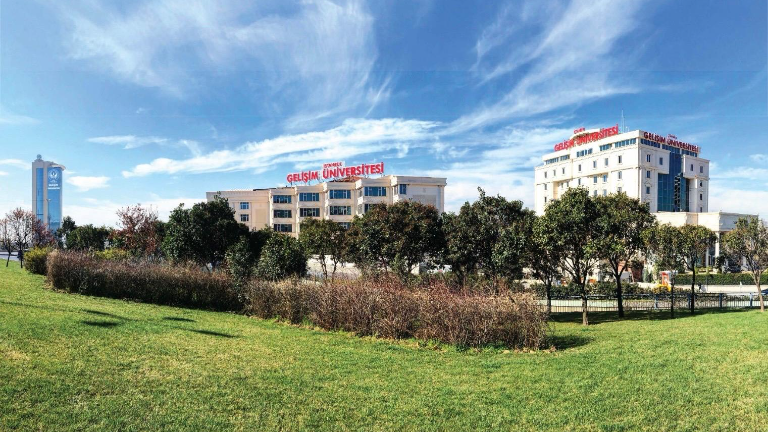Experts Warn: “Don’t Leave Your YKS Preferences to the Last Day!”
The university placement preference period for the Higher Education Institutions Exam (YKS), which started on August 1 and will continue until August 13, marks a significant turning point in students’ lives. However, as the final days approach, increasing stress and time pressure can lead students to make poor decisions. Expert Clinical Psychologist and Preference Counselor Beyza Nalan Alçin from Istanbul Gelisim University shared insights on the risks of leaving preferences to the last minute and the key points students should pay attention to during this process.
“Time pressure hinders healthy thinking”
According to Alçin, the preference process is a journey in which individuals choose the field where they can best express themselves. She emphasized that sufficient time should be allocated for thinking, researching, and seeking guidance. “When the final day comes, anxiety and stress increase. This can lead to poor decisions. Allowing time for yourself is essential for making a healthy choice,” she said.
Alçin noted that leaving preferences to the last minute can be cognitively and emotionally overwhelming for students. Time pressure often pushes students toward choices that are not well thought out, insufficiently analyzed, or incompatible with their personal traits. “External factors such as system overloads or technical glitches can also pose risks. All of these may lead to negative emotions after the preference period,” she said, emphasizing the importance of managing the process in a calm and planned manner.
“What matters is that students make decisions aligned with their own life journey”
Alçin pointed out that it is natural for students to feel stressed as the deadline approaches. In such situations, students should first create a calm environment and then develop a clear plan. “Writing things down makes it easier to proceed step by step. They can start by listing the departments and cities they are considering. This helps them feel more relaxed and act more systematically,” she explained.
She stressed that conscious decision-making is only possible when students understand their interests, strengths, values, and goals. “It’s not just about rankings or external pressures. What truly matters is making a decision that fits one’s personal journey,” she added.
“To choose the right department, students can benefit from the ‘Let IGU Be Your Coach’ project”
Alçin highlighted that knowing one’s own potential and professional inclinations plays a key role in identifying the most suitable program. She noted that students can benefit from various tests and interviews during this process. Referring to Istanbul Gelisim University’s “Let IGU Be Your Coach” project, she stated that they offer free coaching services to students and help them understand themselves better through individual sessions with expert psychologists.
Alçin emphasized that rankings should be seen only as a reference. Instead of basing decisions solely on rankings, students should consider program content, career opportunities, and their own expectations. Otherwise, they may end up in departments they are not interested in and feel unhappy.
Families Should Be Supportive and Good Listeners
Alçin also emphasized the important role families play during the preference period. She advised parents to act as guides rather than decision-makers. “A supportive approach that seeks to understand the student’s dreams—rather than projecting their own—empowers young individuals in their decision-making,” she said.
She also warned that well-meaning comments from others should not shape students’ choices. “Young individuals must learn to distinguish between others’ expectations and their own desires. These decisions will shape
their lives,” she said.
A Balanced Preference List Is Essential
Alçin noted that a good preference list should include not only the “best” but also the “most suitable” programs. Alongside ideal goals, it’s important to include programs with a higher chance of admission. “The preference guide published by ÖSYM should be examined carefully; newly opened or closed quotas must be taken into account when evaluating placement chances. Students who want to avoid being left without a placement should definitely include 'safe choices'—programs well below their ranking—towards the end of their list.”
To navigate the process more effectively, students should seek support from school guidance counselors, university preference advisors, or experts working at preference fairs, she added.
“Remember, this is your journey”
Alçin concluded by stating that post-preference regret usually stems from not knowing oneself well enough or making decisions under external pressure. “No matter the result, this will be
your decision. Even if it’s the wrong one, you always have the chance to correct it. What matters is having confidence in your own journey,” she said.
As the final days of the preference period approach, experts stress the importance of students acting calmly, with a plan, and making informed decisions. Preferences based on personal interests and goals can lead to a more productive and satisfying education experience, while rushed decisions may lead to long-term dissatisfaction. Getting professional support plays a vital role in helping students choose the program that best fits them.
 Created Date: : Friday, August 8, 2025
Created Date: : Friday, August 8, 2025
 Created Date: : Friday, August 8, 2025
Created Date: : Friday, August 8, 2025







